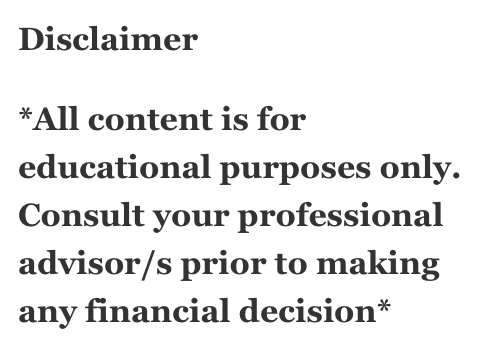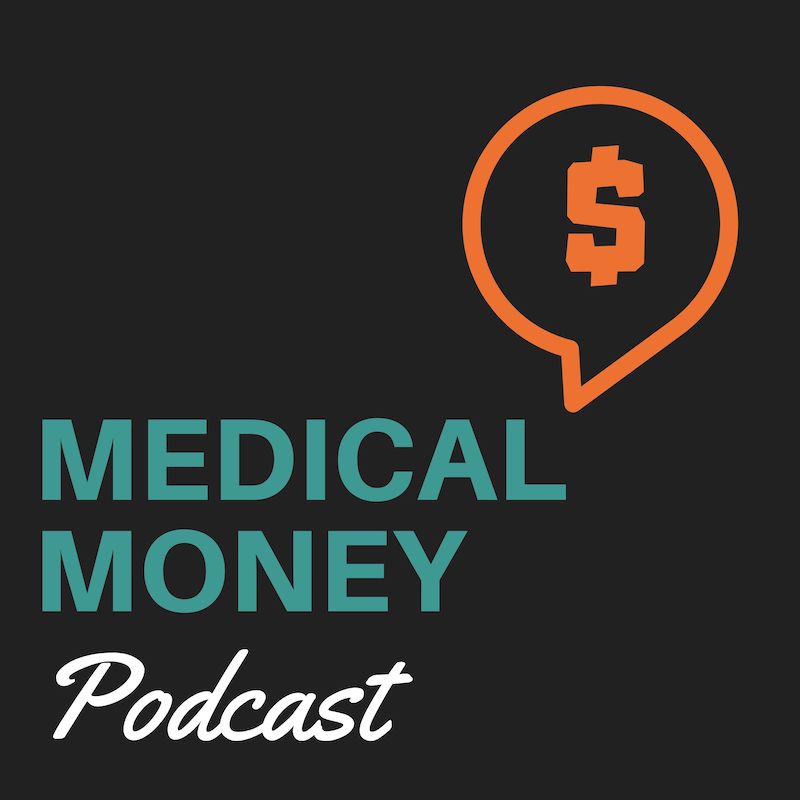Doctors have incomes significantly higher than the average wage earner. We also like to think we’re above average intelligence. However, we often do silly things with our money.
From as early as medical school, credit is thrown at us from all angles, and it’s too easy for doctors to get sucked into a debt tornado.
I don’t do frugality, but I believe we should be mindful about where we spend our hard earned dollars. The Pareto Principle states that 20% of our effort will give us 80% of our results- if we do the big things right we can drink all the lattes we like and even have
Principles: rules or beliefs governing one’s behaviour.
Here are the five basic money principles that help me keep financial control of my life, sleep better and reduce stress.
Following these principles are a handful of money tips and habits that I recommend you consider integrating into your life.
Got some money principles of your own? Share them in the comments below.

This post may contain affiliate links. Please read my disclaimer for more info.
Medical Money Principles
Principle 1- Spend Less Than You Earn
Crazy idea huh? Simple to understand, not easy to execute.
Lifestyle inflation can happen so quickly when we get those specialty letters after our names.
While fighting the hedonic treadmill, we should aim to live on less than 80% of our earnings.
Principle 2- Don’t Buy Depreciating Things on Credit
The big one here is cars- if you can’t afford to buy your car outright, buy a cheaper car. Other items you shouldn’t go into debt for include weddings, TVs and holidays. Save the cash first.
Principle 3- Invest Early and Invest Regularly
Look for ways for your money to make money babies.
Albert Einstein called compound interest the Eighth Wonder of the World. Take the savings from Principle 1 and invest them in a diversified portfolio to prepare for retirement and insulate against sector volatility. When we start investing early, we compound our returns, knowledge and confidence.
Principle 4- All Debt Is Bad
The terms “good debt” and “bad debt” are often thrown around. I believe all debt is bad- some is just worse than others.
The worst debt gives you no financial gain. Aim to eliminate all non-deductible debt as soon as possible.
While leveraging other people’s money is a powerful way to grow wealth, make sure you can afford the repayments and keep the potential downside in check- just ask your colleagues who received margin calls in the turmoil of 2008 or this class action lead case.
Principle 5- Track and Review Finances Regularly
Knowledge is power. It’s important to know how you spend your money and how much is in your bank accounts.
Track your income, spending, assets, debts and net worth at least annually, preferably quarterly.
I personally use Xero to track all my accounts weekly. This habit helped me identify an $11,000 credit card fraud just days after it happened and potentially prevented even more malicious spending.
More Money Tips, Ideas and Habits To Build Your Financial Muscles.
Watch Out for HIV
Your “HiFive” expenses will eat the majority of your disposable income:
Mortgage/ Rent
Car/ Transport
Insurance- general, indemnity, income protection, life, needle-stick, trauma
Child-related expenses namely education
Entertainment & Holidays- dining, wine, liquor, flights, fancy hotels
Build an Emergency Fund
Keep 3 months’ expenses in reserve, preferably 6 months’, in preparation for a “rainy day”. I’ve seen numerous colleagues break clavicles, tear ACLs and deal with cancer that’s put them out of action for months.
Stash your emergency cash in a separate bank account or park it in your mortgage offset account. A recent survey showed 21% of respondents had no cash savings.
Pay Off Your Credit Card Every Month
In mid-2018 Australians had over $45 billion in credit card debt. Take the points, but don’t pay the interest. Even worse than interest is late payment fees. Set up
If credit is too tempting for you, get a debit card.
Keep Your Mortgage Under 30% Of Your Income
It’s common for families to experience financial stress when mortgage repayments hit 35% of after-tax income. By keeping your repayments under 30%, you have some wriggle room if interest rates rise.
The simple solution to high repayments- buy a less extravagant house or save up a bigger deposit.
Calculate your mortgage repayments using Money Smart’s tool.
Remember: just because the bank will lend you money, doesn’t mean you need to take it.
Limit Your Mortgage to 2x Your Annual Household Pre-Tax Income
This is a conservative rule of thumb that will keep your repayments in control and have your house paid off in under 10 years.
Setup a 100% Mortgage Offset Account
If you have a mortgage, an offset account allows you to reduce your interest repayments. By channelling your income into an offset account, the interest you pay is calculated on the balance of your mortgage minus the balance in your offset account.
For example, if your mortgage is $500k and you have $100k in your offset account, your interest charges will be on $400k rather than $500k.
Look out for the costs on maintaining this account- ideally, it is fee-free.

The Rule of 72
This is a quick way to determine the time it will take for the value of your investment to double given a fixed annual rate of interest. Doubling Time = 72 / Annual Rate of Return. For example, if you put money into a fixed deposit that pays 3.6% interest per annum, it will take 20 years for your money to double (72/3.6). Similarly, an investment with a 14.4% return would take just 5 years to double (72/14.4). Of course, this doesn’t factor in additional costs of tax, maintenance etc. but allows you to weigh up the opportunity cost of different investments quickly.
Get an Accountant
Accountants are crucial to our financial success and every doctor should have one. They help with tax planning, structuring asset ownership and find a whole host of deductions you wouldn’t even know about. Two of the most cringe-worthy things I see colleagues do is doing their own tax to save a few hundred dollars a year and not filing their tax documents every year.
Get Medical Indemnity Insurance
Whether you are a medical student, trainee or hospital employee you need to have someone you can call for legal advice when that inevitable patient complaint comes through.
Hospitals may cover you for malpractice, but they probably won’t cover you for medical board breaches.
Get Income Protection Insurance
Our greatest asset is our earning capacity and life is unpredictable. The best time to get income protection is the day before you need it 🙂 But unless you can predict that date you’ll get injured or diagnosed with cancer, the next best time is now.
If you have dependents, you should also look at trauma and life insurance cover too.
Money is a Team Game
Having shared finances with your spouse allows you to make significant financial decisions together. I realise this is controversial and many of my medical colleagues keep very separate financials. My rationale is that your money is like water in a bucket and one person can’t stop the leakage if the other is forever drilling holes. I personally discuss all non-business spending greater than $1,000 with my wife.
Unsubscribe from Shopping Emails
Sale is a four-letter word. Like a red rag to a bull, there is something deep inside us that finds it impossible to resist buying something on discount. Most of us don’t need more “stuff” in our lives. Clicking that “unsubscribe” button could save you thousands.
Save for Retirement Early
Retirement needs to be planned for. The government is forever reducing the tax effective amount you can stash in your superannuation fund- the current concessional contribution is $25,000 per year. This means you’ll need to create your own investment portfolio to have any chance of maintaining your current lifestyle when you stop working. A brave target is to invest at least 20% of your income.
Enjoy Life
Have lattes, enjoy holidays and spend time with family and friends. Just make them part of your financial plan. We didn’t struggle and sacrifice to get through our training programs only to work even harder when we become specialists. I’ve had colleagues who didn’t survive to see their 40th birthday. On your deathbed will you wish you spent more time at work?
The Time to Improve Your Financial Situation is Now
Our lives will be full of good decisions and bad decisions.
Learn from your experience, learn from others, but most importantly, take action.
“Wealth consists not in having great possessions, but in having few wants.”
Epictetus
Got some money principles or habits of your own? Share them in the comments below.


